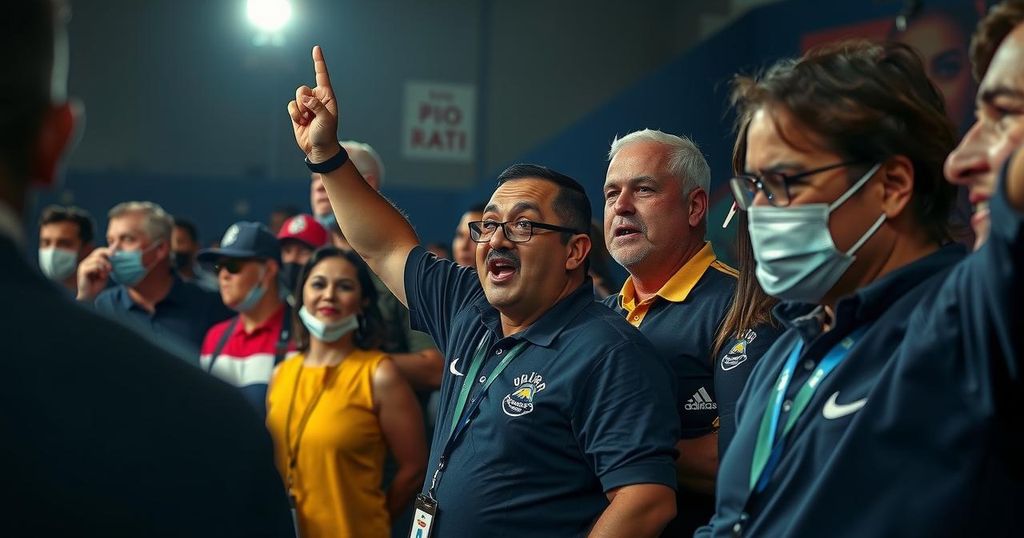Uruguay’s Presidential Runoff: A Tight Race Between Delgado and Orsi
Uruguay’s presidential runoff on November 24, 2024, features a close race between National Party candidate Álvaro Delgado and Broad Front’s Yamandú Orsi. Following the inconclusive first round, both candidates are focused on addressing public concerns over crime and economic policy. This election signals heightened political competition and voter uncertainty, reflecting Uruguay’s unique democratic landscape amidst broader regional challenges.
Uruguay is poised for a decisive second round of presidential voting on Sunday, November 24, 2024, as the contest between conservative candidate Álvaro Delgado of the National Party and Yamandú Orsi from the left-leaning Broad Front coalition intensifies. Following an inconclusive first round where Delgado garnered 27% of the vote compared to Orsi’s 44%, this runoff will determine the nation’s leadership after a decade of Broad Front governance that ended in 2019. The election bears significant implications not only for Uruguayan politics but also reflects broader issues of public sentiment and governance in South America.
The current political landscape illustrates growing competition between established parties. While Delgado seeks to build upon the achievements of outgoing President Luis Lacalle Pou, who remains popular despite facing corruption allegations, Orsi positions himself as a champion of social liberalism and reform, echoing the values of former President José Mujica. The upcoming election represents a critical juncture as both candidates navigate public concerns regarding crime and economic policy in their campaigns. Polls indicate a tight race, with nearly 10% of voters undecided, contributing to an atmosphere of uncertainty as election day approaches.
Analysts emphasize that this electoral contest differs from the populist trends observed globally, noting that both candidates share common ground on numerous key issues, resulting in notable voter indecision. Despite the challenges, the election showcases Uruguay’s democratic resilience, marked by relative calm in an era of political upheaval across Latin America. The repercussions of this round could significantly influence Uruguay’s socio-economic landscape and establish a precedent for future electoral dynamics.
The political situation in Uruguay has evolved significantly since 2019 when the Broad Front coalition lost its long-held power to the center-right government led by President Luis Lacalle Pou. The Broad Front oversaw progressive reforms, including the legalization of abortion and same-sex marriage, establishing itself as a transformative force in Uruguayan society. However, the subsequent administration faced challenges, including corruption scandals and concerns surrounding crime, prompting renewed interest and competition among political parties in the upcoming runoff election. With the National Party aiming to secure a second consecutive term and the Broad Front seeking to regain control, the stakes are particularly high for both candidates in this crucial electoral battle.
As Uruguay prepares for its upcoming presidential runoff, the closely contested election between Álvaro Delgado and Yamandú Orsi has captured national attention. Both candidates embody contrasting visions for the future of the country, with Delgado advocating continuity of the current government’s policies and Orsi promising to revive the progressive reforms of the past. The electoral climate reflects not only the immediate concerns of the Uruguayan electorate but also the broader themes of democracy, political accountability, and the search for effective governance in a changing regional context. Thus, the outcome of this runoff may greatly shape the country’s trajectory for years to come.
Original Source: apnews.com




Post Comment